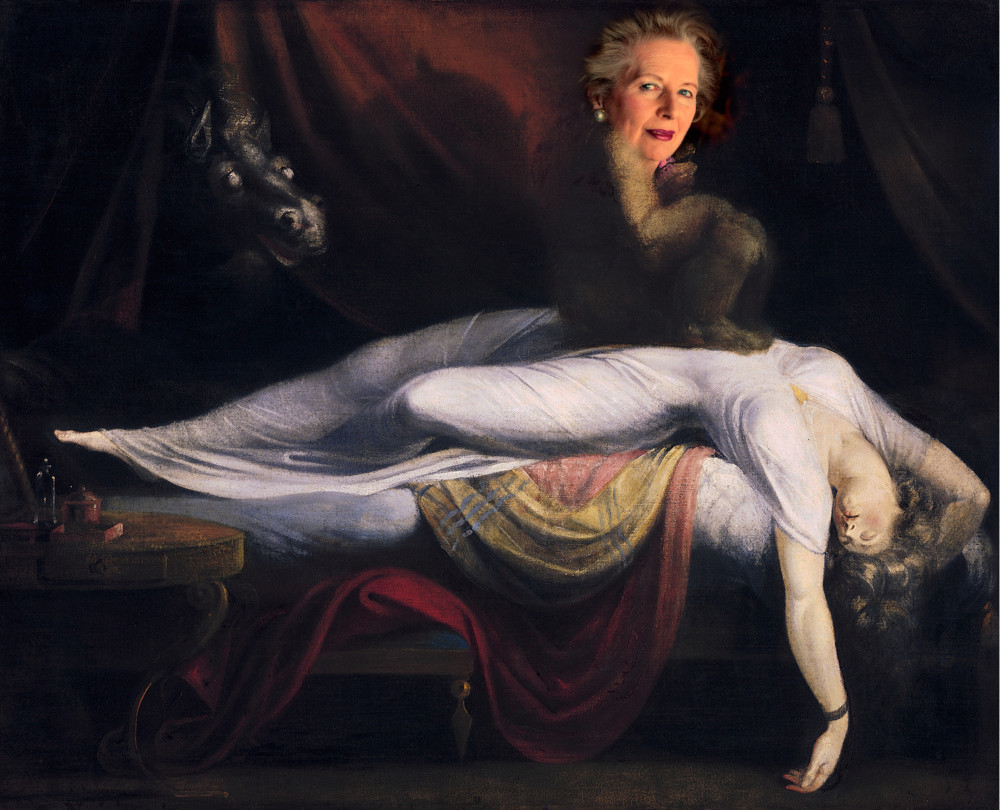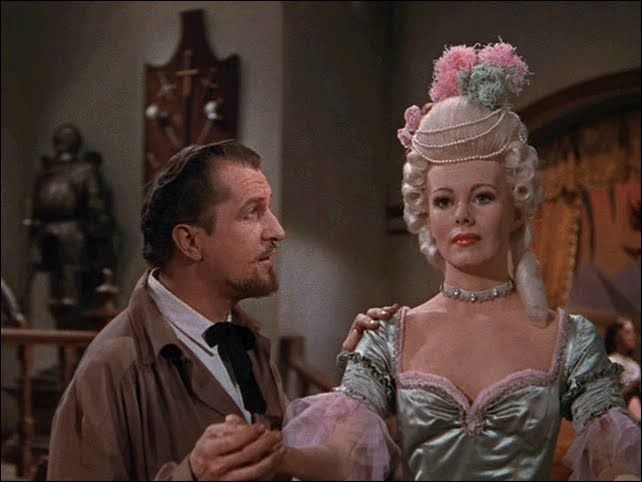
My latest column for @locusmag is "The Unimaginable," about the relationship of science fiction plays to the future. Sf is a literature of inspiration and warning, not prediction.
locusmag.com/2021/11/cory-d… 1/
locusmag.com/2021/11/cory-d… 1/

I mean, thank goodness. If the future was predictable, there'd be no point in getting out of bed, because the future would arrive irrespective of our actions. 2/
Sfnal tales that posit a predictable future (like Asimov's "Foundation" or Heinlein's "Jonathan Hoag") are pure fatalism.
Instead of predicting a future, sf imagines *lots* of futures. 3/
Instead of predicting a future, sf imagines *lots* of futures. 3/
This is an intrinsically political act, because it rejects the political claim that the world is the way it is because it could not possibly be different. 4/
This claim is often implicit in ideology, but Margaret Thatcher made it explicit, claiming "there is no alternative" to free-for-all capitalism. 5/
This idea - shortened to "TINA" - is the cornerstone of #CapitalistRealism, whose goal is to foster a mindset where "It is easier to imagine an end to the world than an end to capitalism."
Now, this is obviously untrue. It's super-easy to imagine a world without capitalism. 6/
Now, this is obviously untrue. It's super-easy to imagine a world without capitalism. 6/
My own books - Down and Out in the Magic Kingdom, Walkaway and more - have done so. The very exercise of imagining a #postcapitalist world is heady and refreshing. 7/
But while postcapitalist futures are a dime a dozen in sf, the actual moment in which capitalism ends is rarely depicted. 8/
For example, Kim Stanley Robinson has published a string of *astoundingly great* novels depicting postcapitalism (Pacific Edge, 2312, etc), without giving us the transition itself. 9/
Or rather, he *hadn't* given it to us, not until 2020, when he published his blockbuster climate novel "The Ministry for the Future."
pluralistic.net/2020/12/03/min… 10/
pluralistic.net/2020/12/03/min… 10/
"Ministry" breaks new ground for Robinson and does something rarely seen in the field: depicts a plausible, step-by-step sequence in which capitalism falls. 11/
To make this work, Robinson employs a documentary storytelling style, where short vignettes depict key moments through the eyes of dozens of characters. 12/
This in-the-round view of a complex and wrenching change is so damned hopeful - a tonic against the dystopian fatalism all around us.
But as I wrote with in initial review of *Ministry," I think Robinson's book has an important omission. 13/
But as I wrote with in initial review of *Ministry," I think Robinson's book has an important omission. 13/
The transition from capitalism to #postcapitalism that it depicts involves multiple acts of spectacular, ghastly violence. For example, one key turning point comes when every private jet in the sky is destroyed midflight by a coordinated drone-attack. 14/
This event is depicted through a news-story-like exposition - the documentarian's camera does not switch on in the cabin of any of those jets, nor in the lair of the terrorists who caused them to fall. 15/
I think I understand why Robinson made this choice. 16/
He's trying to split a very fine hair: the injustice and death of unchecked climate change will make people angry enough to murder, and the people who have it in their power to avert climate catastrophe might be motivated by the fear of that anger. 17/
I don't think he's glorifying the violence, nor apologizing for it, but rather, depicting it as a kind of inevitable outflow from abandoning billions to suffer and die in order to preserve profits for a tiny elite. 18/
Even for a writer of Robinson's prodigious talents, giving us the worm's eye view of the terrorists and their dead is hard going. 19/
You don't want to glorify the violence, and you don't want to transform the martyrdom of their victims into redemption for their decades of genocidal greed.
Margaret Thatcher is the opposite of science fiction: TINA is a demand to stop trying to imagine an alternative. 20/
Margaret Thatcher is the opposite of science fiction: TINA is a demand to stop trying to imagine an alternative. 20/
By contrast, thinkers like @davidbollier advance TAPAS, which stands for "There are Plenty of Alternatives!"
thealternative.org.uk/dailyalternati… 21/
thealternative.org.uk/dailyalternati… 21/
As Michael Hudson writes for @nakedcapitalism, TINA's appeal is in its ability to offer a deceptive "proof" that markets produce the best of all possible worlds:
nakedcapitalism.com/2021/11/neocla… 22/
nakedcapitalism.com/2021/11/neocla… 22/
For decades, capitalist realism has attempted to extinguish our very ability to imagine alternatives. Hudson says that the thing that comes after capitalist realism isn't another ideology with pretenses to empirical capital-T truth. 23/
Rather, we're heading to a world based on "a variety of useful alternative views on economic policies and practices." 24/
Robinson's decision to draw a veil over the spectacular violence in his transition isn't a flaw, but rather, a residue - the last remnant of our TINA-crippled imaginations. It points the way for future work, where writers lean hard into this question. 25/
The more ways we imagine a transition, the more hope we bring into the world. The very fact that a transition is possible is a reason to attempt it. 26/
ETA - If you'd like an unrolled version of this thread to read or share, here's a link to it on pluralistic.net, my surveillance-free, ad-free, tracker-free blog:
pluralistic.net/2021/11/08/tin…
pluralistic.net/2021/11/08/tin…
• • •
Missing some Tweet in this thread? You can try to
force a refresh



















